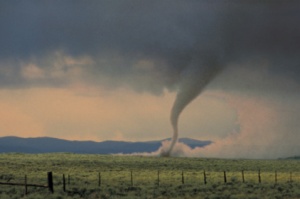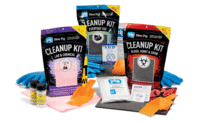 Fifty percent of Americans have not discussed or developed an emergency plan for family members about where to go and what to do in the event of a local disaster, according to a 2014 national survey conducted by the Department of Homeland Security’s Federal Emergency Management Agency (FEMA). FEMA and the Ad Council have launched a new series of public service advertisements (PSAs) today as an extension of their national Ready campaign to encourage parents to develop an emergency preparedness plan. The new PSAs are unveiled in time for the 11th annual National Preparedness Month (NPM), which begins on today.
Fifty percent of Americans have not discussed or developed an emergency plan for family members about where to go and what to do in the event of a local disaster, according to a 2014 national survey conducted by the Department of Homeland Security’s Federal Emergency Management Agency (FEMA). FEMA and the Ad Council have launched a new series of public service advertisements (PSAs) today as an extension of their national Ready campaign to encourage parents to develop an emergency preparedness plan. The new PSAs are unveiled in time for the 11th annual National Preparedness Month (NPM), which begins on today.
Make a plan
“The first step to preparing for disasters is simple and it’s free – talk to your family and make a plan,” said Craig Fugate, FEMA administrator. “Do you know how you’ll reunite and communicate with your family during an emergency? Through our continued partnership with the Ad Council, this year’s campaign illustrates how making a plan can keep families together and safe during a disaster.”
Created pro bono by New York-based advertising agency Deutsch Inc., the new creative includes English- and Spanish-language TV, radio, outdoor, print and digital PSAs that depict the aftermath of a disaster and show two families: one family who have all found each other safely at a shelter they earlier designated as their meeting place, and one set of parents who are frantically searching for their son. Through these PSAs, families are faced with the harsh reality of what can happen when you do not have an emergency plan in place before a disaster or emergency strikes. The PSAs direct audiences to know where to find their families when a disaster strikes and to start their emergency plans at Ready.gov and www.Listo.gov, which have extensive resources for preparing for emergencies.
Take key steps
“Our Ready campaign with FEMA exemplifies the power of advertising in influencing both awareness and behavior change,” said Peggy Conlon, president and CEO of the Ad Council. “While we have significantly increased the numbers of families who have taken key steps to be more prepared, there are still too many who do not have a plan in place. These conversations about what to bring and where to go are integral and can impact your family’s safety in the event of an emergency or disaster.”
Since its launch in 2003, the campaign has received more than $1 billion in donated media. The campaign has also helped to generate over 71 million unique visitors to Ready.gov.
Heart-stopping reactions
“We are excited to continue our work with the Ad Council and FEMA to create conversations and encourage people to have a plan in place in case of an emergency,” said Val DiFebo, CEO, Deutsch NY. “This year’s campaign will elicit heart-stopping reactions from parents—and that is our goal—to motivate parents into action to create emergency plans for the safety of their families. Speaking as a parent, there is nothing more frightening than being apart from your family in an emergency situation. We are honored to be part of this very important mission.”
Managed and sponsored by the Ready Campaign, National Preparedness Month is designed to raise awareness and encourage Americans to take steps to prepare for emergencies in their homes, schools, organizations, businesses and places of worship. In partnership with Citizen Corps, emergency preparedness officials and the Ad Council, National Preparedness Month is an opportunity to disseminate emergency preparedness information and host sponsor activities across the country to help Americans understand what it truly means to be ready. This year, each week throughout September will have a different theme, which will focus on emergency preparedness topics such as how to plan for specific needs before a disaster, how to build an emergency kit, how to practice for an emergency and this year’s PSA campaign theme—how to reconnect with a family after a disaster. This year’s campaign culminates with a day of action, National PrepareAthon! Day on September 30, when people in communities across the nation will practice what to do in advance of an emergency. Practicing a preparedness action in advance of a disaster makes you better prepared to handle any emergency you may encounter.



